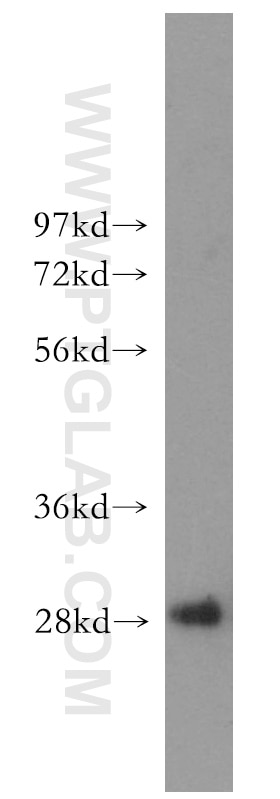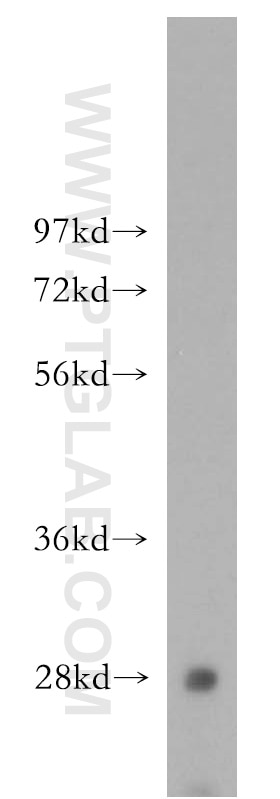Tested Applications
| Positive WB detected in | human liver tissue, mouse liver tissue |
Recommended dilution
| Application | Dilution |
|---|---|
| Western Blot (WB) | WB : 1:500-1:2000 |
| It is recommended that this reagent should be titrated in each testing system to obtain optimal results. | |
| Sample-dependent, Check data in validation data gallery. | |
Product Information
51060-1-Ig targets Hepsin in WB, ELISA applications and shows reactivity with human, mouse samples.
| Tested Reactivity | human, mouse |
| Host / Isotype | Rabbit / IgG |
| Class | Polyclonal |
| Type | Antibody |
| Immunogen |
Peptide Predict reactive species |
| Full Name | hepsin |
| Calculated Molecular Weight | 47 kDa |
| Observed Molecular Weight | 28 kDa |
| GenBank Accession Number | BC138809 |
| Gene Symbol | Hepsin |
| Gene ID (NCBI) | 15451 |
| RRID | AB_763181 |
| Conjugate | Unconjugated |
| Form | Liquid |
| Purification Method | Protein A purification |
| UNIPROT ID | O35453 |
| Storage Buffer | PBS with 0.02% sodium azide and 50% glycerol, pH 7.3. |
| Storage Conditions | Store at -20°C. Stable for one year after shipment. Aliquoting is unnecessary for -20oC storage. 20ul sizes contain 0.1% BSA. |
Background Information
Hepsin is a type II transmembrane serine protease. It is primarily expressed in the liver but has also been detected in other tissues, including the prostate, kidney, and pancreas. Hepsin plays a crucial role in various physiological processes, such as cell growth, extracellular matrix remodeling, and tissue homeostasis. Notably, Hepsin has been implicated in cancer progression, particularly in prostate cancer, where its overexpression is associated with tumor metastasis and poor prognosis (PMID: 15324701, PMID: 18726901). Hepsin has been identified as a peptide of approximately 45 kDa representing the intact protein, and a fragment of about 28 kDa representing the cleaved extracellular domain (PMID: 19302215, PMID: 21734266).






